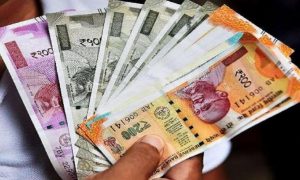World Kidney Cancer Day: Regular check-ups, including abdominal ultrasounds after the age of 50, are recommended
When it comes to preventing kidney cancer, a healthy lifestyle plays a crucial role. By focusing on maintaining a healthy weight, following a nutritious diet, and minimizing risk factors, we can significantly reduce the risk of developing kidney cancer.
Dr. Nikhil Krishna Haridas, Consultant, Medical Oncology, Amrita Hospital, Kochi shares the common symptoms:
Read More: High Cholesterol Levels In Blood? Try These 5 Super Nuts For A Healthy Heart
Common symptoms of kidney cancer include abdominal pain, which typically radiates to the back or flank region due to the proximity of the kidneys. Hematuria (blood in urine) is another significant symptom that requires urgent evaluation. Advanced kidney cancer may present with unrelated symptoms such as weight loss, bone pains, fevers, and anemia.
DIAGNOSTIC TESTS AND TREATMENT:
When symptoms or kidney masses are detected, specific tests are necessary to establish a diagnosis and determine the stage of the disease.
Blood Investigations:
A set of blood investigations, including complete blood counts, kidney function tests, and electrolyte levels, provide valuable insights into overall health.
Read More: Acid Reflux: 5 Ways To Lower Risk Of Heartburn Naturally
Imaging Tests:
Cost-effective abdominal ultrasounds help identify primary issues, while advanced imaging tests like CT scans or MRIs aid in staging the disease and determining its spread beyond the kidneys.
Biopsy and Treatment Planning:
In some cases, surgical procedures to remove the kidney or percutaneous biopsies may be necessary. These tests help understand the nature and subtype of the disease, facilitating prognosis and treatment planning.
Tips On How To Keep Cancer Away
Maintaining a Healthy Weight
Obesity is a well-established risk factor for kidney cancer. Therefore, it is essential to maintain a healthy body weight by engaging in regular exercise and promoting weight loss. Aim for a body mass index (BMI) below 30 to reduce the risk. Regular physical activity not only helps with weight management but also contributes to overall well-being.
Healthy Eating Habits
Emphasize healthy eating habits to reduce the risk of kidney cancer. Include lean sources of protein, such as egg whites and vegetables, in your diet. Ensure adequate intake of micronutrients. It is crucial to reduce the consumption of red meat and avoid tobacco, as these factors have a significant impact on kidney cancer risk.
Read More: Beware, itching during pregnancy could be a liver condition; know signs and symptoms
Sodium Intake and Hypertension
Avoid excessive salt intake, especially if you have hypertension or kidney disease. Controlling salt consumption plays a vital role in managing blood pressure and maintaining kidney health.
Diabetes Control
Effectively managing diabetes is essential for long-term kidney health. By controlling blood sugar levels, individuals can minimize the risk of kidney complications, including kidney cancer.
Caution with Painkillers
Exercise caution when using over-the-counter painkillers, as some medications can lead to kidney injury if used inappropriately. Be aware of the potential risks and follow recommended guidelines for painkiller usage.
Asymptomatic Presentation:
The majority of kidney cancer cases are asymptomatic, meaning they show no noticeable symptoms and are often incidentally detected during evaluations for other health concerns. Therefore, routine check-ups and screenings, particularly after the age of 50, are crucial for early detection.
In conclusion, early detection is crucial for kidney cancer. Regular check-ups, including abdominal ultrasounds after the age of 50, are recommended. By adopting a healthy lifestyle, maintaining a healthy weight, following a nutritious diet, and avoiding risk factors such as tobacco use, we can significantly reduce the risk of kidney cancer.





































